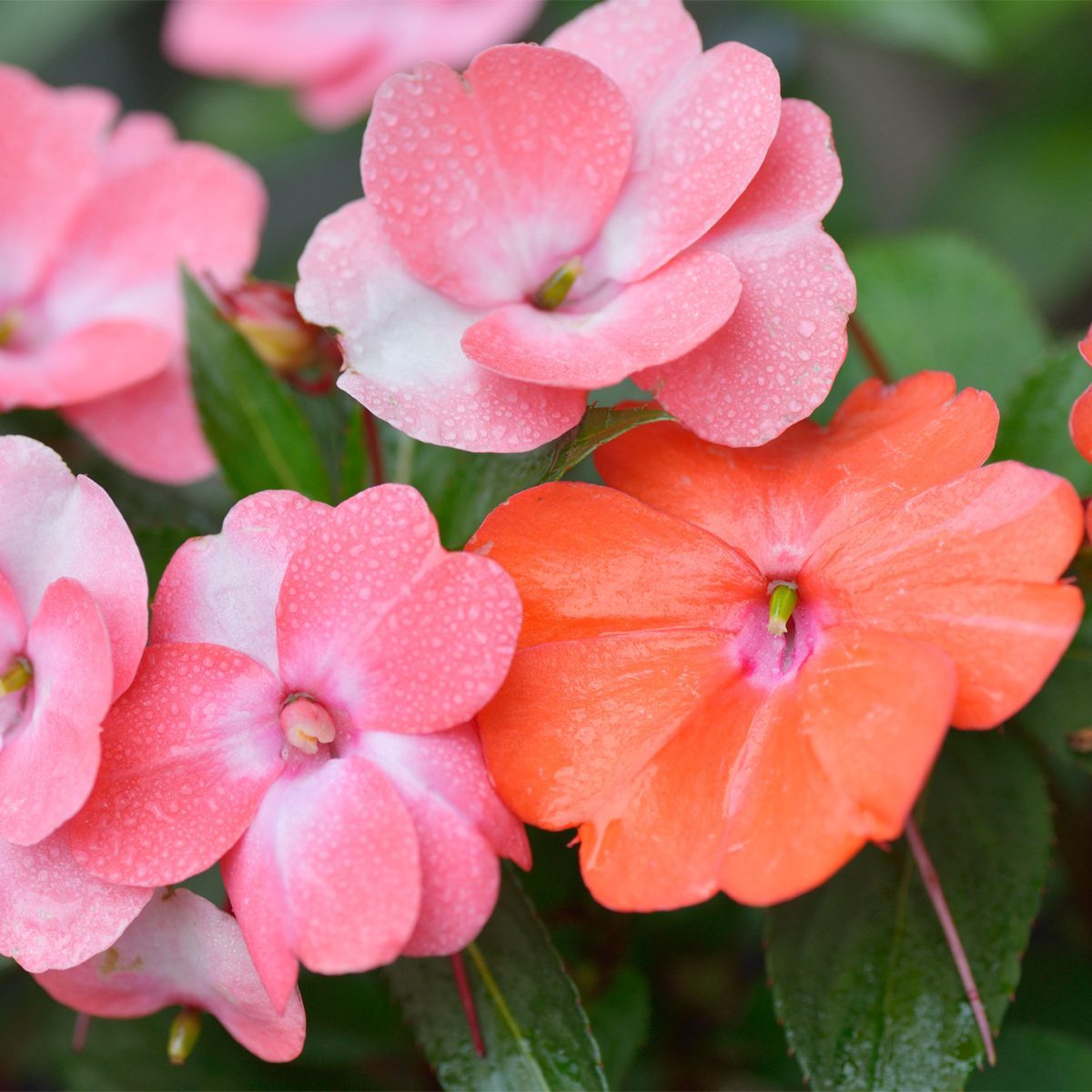Fill your planters and hanging baskets with these easy to grow, colorful container plants and flowers for shade gardens.

Best Container Plants for Shade Gardens

The wonderful thing about container gardening is that it allows you to have a garden just about anywhere, including balconies, porches, and patios. Those small space gardens may not always have as much sun as you might like, but that doesn’t mean you can’t fill those areas with plenty of color. Try these eight tried-and-true shade gardening favorites in your containers this year!
Here’s how to plant a hanging flower basket in five easy steps.
On This Page
Begonia

Zones 8 to 11 or Annual
Begonias are the champs of container shade gardening. Though they’re usually grown as annuals outdoors, these are actually perennials when protected from frost and freezes. Bring your containers indoors in the winter and grow these for years! The reds, pinks, and whites of yesteryear are being supplemented with brilliant yellows and oranges in today’s market. Try the Surefire series for easy-care blooms all season.
Check out more pretty perennial container garden ideas.
Coleus

Zones 10 to 11 or Annual
Coleus, sometimes called painted nettle, is usually grown for its colorful foliage, though it does produce small flowers. You’ll find it available in an amazing mix of hues, from neon green to deep burgundy, and everything in between. Mix it with other blooms in containers, or let it shine on its own. If it gets too tall, pinch it back to about 6 inches and it will reward you with bushy new growth.
Torenia

Annual
Often called wishbone flower, torenia has been becoming more popular in recent years as gardeners realize its value for shade gardening. Once found mainly in blue and pink, torenia is now available in yellow, orange, and multi-colored blooms too. Torenia doesn’t tolerate being dry, so plan to give it plenty of water during the hot months. Try the Summer Wave series in hanging baskets for a real wow factor.
Impatiens

Zones 10 to 11 or Annual
If you want brilliant color in the shade, impatiens are your go-to flower. Long beloved for their ability to provide interest under trees and in hidden corners, impatiens are easy to grow as long as you keep them well-watered and well-shaded. There’s no need to dead-head, but you can cut them back if they get “leggy” to allow for fuller growth. Think impatiens are boring? Look for the newer bi-color and tri-color varieties like ‘Patchwork Cosmic Orange‘—they’ll change your mind!
Learn how to grow New Guinea impatiens.
Vinca

Catharanthus roseus, Zones 9 to 11 or Annual
Since impatiens can be somewhat intolerant of high humidity in the summer, gardeners in the Deep South have turned to vinca for reliable color in the shade. The flowers are similar, but vinca has deep green glossy foliage that sets off the colors of the blooms. Vinca can also handle some sun, and is perfect in the dappled shade beneath trees.
Fuchsia

Zones 10 to 11 or Annual
A hanging basket of fuchsia belongs on any shady front porch! The blooms are like works of art all on their own, with the added benefit of drawing hummingbirds like a magnet. Water them well, but make sure the pot has good drainage to avoid root rot. Fuchsia is worth bringing indoors for the winter, were you can give it a little more sunlight if kept in a cool room. The pink-and-purple variety is most common, but seek out ‘Velvet Crush’ for its deep burgundy and cream blooms.
Monkey Flower

Mimulus, Annual
These trumpet-shaped flowers are native to the U.S., and often have interesting blotchy coloration on their petals. Like many plants suited to shade gardening, they require plenty of water. In cooler climates, they’ll flower best with a little sun—try putting them where they’ll catch a few hours of morning rays. The ‘Magic Blotch’ series is easy to grow from seed and comes in a variety of colors.
Trailing Bacopa

Sutera cordata, Zones 9 to 10 or Annual
Another winner in hanging baskets, trailing bacopa boasts hundreds of tiny blooms long into the fall when others have stopped blooming. The white-flowered versions are great mixed with other colorful annuals, while the purplish-blue and newer pink varieties look lovely on their own.
Sources
- Proven Winners
- Syngenta Flowers
- Ball Horticultural Company
- The National Gardening Association




















